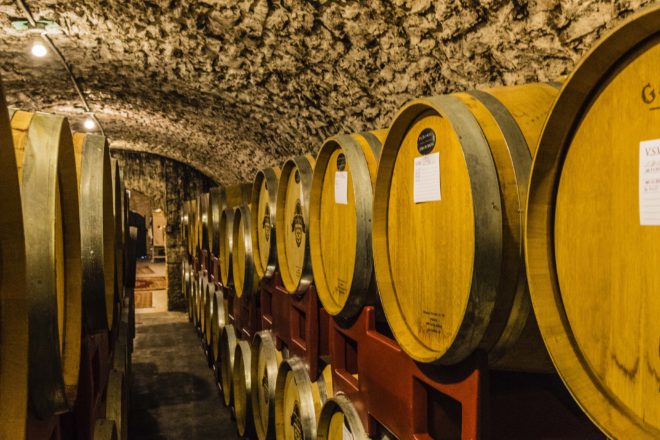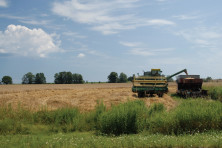Proposed European Wine Tariff Worries Local Establishments
- Share
- Tweet
- Pin
- Share

A proposed 100 percent tariff on various products imported from Europe – including all wine – is causing concern for local restaurants and retailers. If the tariff goes into effect – which could happen as soon as February – consumer costs for these European products would likely double, and some products would no longer be available at all.
The Office of the U.S. Trade Representative (USTR) said that the proposal, which expands an existing 25 percent tariff on a narrower list of goods, is in response to a digital-services tax imposed by France. The USTR said the tax unfairly targeted American firms including Google, Apple, Facebook and Amazon. The dispute dates back to October 2019, when the World Trade Organization (WTO) agreed that European Union subsidies to the aerospace firm Airbus were unfair to the United States.
Monique McClean opened Pearl Wine Cottage in Ephraim in 2019. She said that up to 80 percent of her inventory comes from imported wines, primarily from Europe.
“You’re reducing the number of people that would be able to buy a glass of wine,” McClean said. “There may be good reason to respond to these digital-services taxes. I just think if you’re going to go to specific products, the consequences are far reaching, and it affects a lot of the little guys.”
Tariffs are typically used to reduce foreign imports, which should increase domestic production and sales. But the strategy is generally less effective for highly specialized products such as fine wine. For example, a corn kernel from the United States is roughly the same as one from China or Argentina, which makes it a good candidate for tariffs that will result in more domestic production of corn. But people are not as likely to give up their favorite Châteauneuf-du-Pape vintage for a red blend from the Midwest. Still, a $20 glass of wine is a tough sell for even the most passionate wine drinkers.
“The 100 percent tariff would be devastating to the wine and spirits industry,” said Taylor Dutmer, director of sales for Winebow, a distributor in Hartland, Wisconsin. “Consumers rightfully will not be willing to pay double for these items, and, as a result, producers will need to focus on other markets and importers, and distributors will need to limit these wines and spirits being brought in without the demand for them.”
McClean plans to work with distributors to manage these shifts.
“I’ll look for other options,” McClean said, “but are the quality of those options going to be the same?”
Scott Zimmerman, manager of the Whistling Swan Inn and Restaurant in Fish Creek, similarly likes to include a distinctive and rotating selection of international wines on the wine list.
“The real drag is finding niche wines at a value – something that you never had before but was cheap enough to take a risk on,” Zimmerman said. “Those will probably be the first to go off our list if the price was too high.”
Russell Turco, founder and winemaker at Stone’s Throw Winery, said the proposed tariffs are unlikely to affect his wines produced in Door County. But Turco, in an email from the winery’s facility in Chianti, Italy, said the region is broadly concerned with European wines caught in the crosshairs of a trade dispute.
“Simply substituting wines from other countries to make up for lost sales or changing the business model to just sell other products is not an easy option,” Dutmer said. “We are going to experience significant job and revenue losses as a result of these tariffs if they are imposed.”
The U.S. trade representative is taking public comments on the proposal until Jan. 13.



